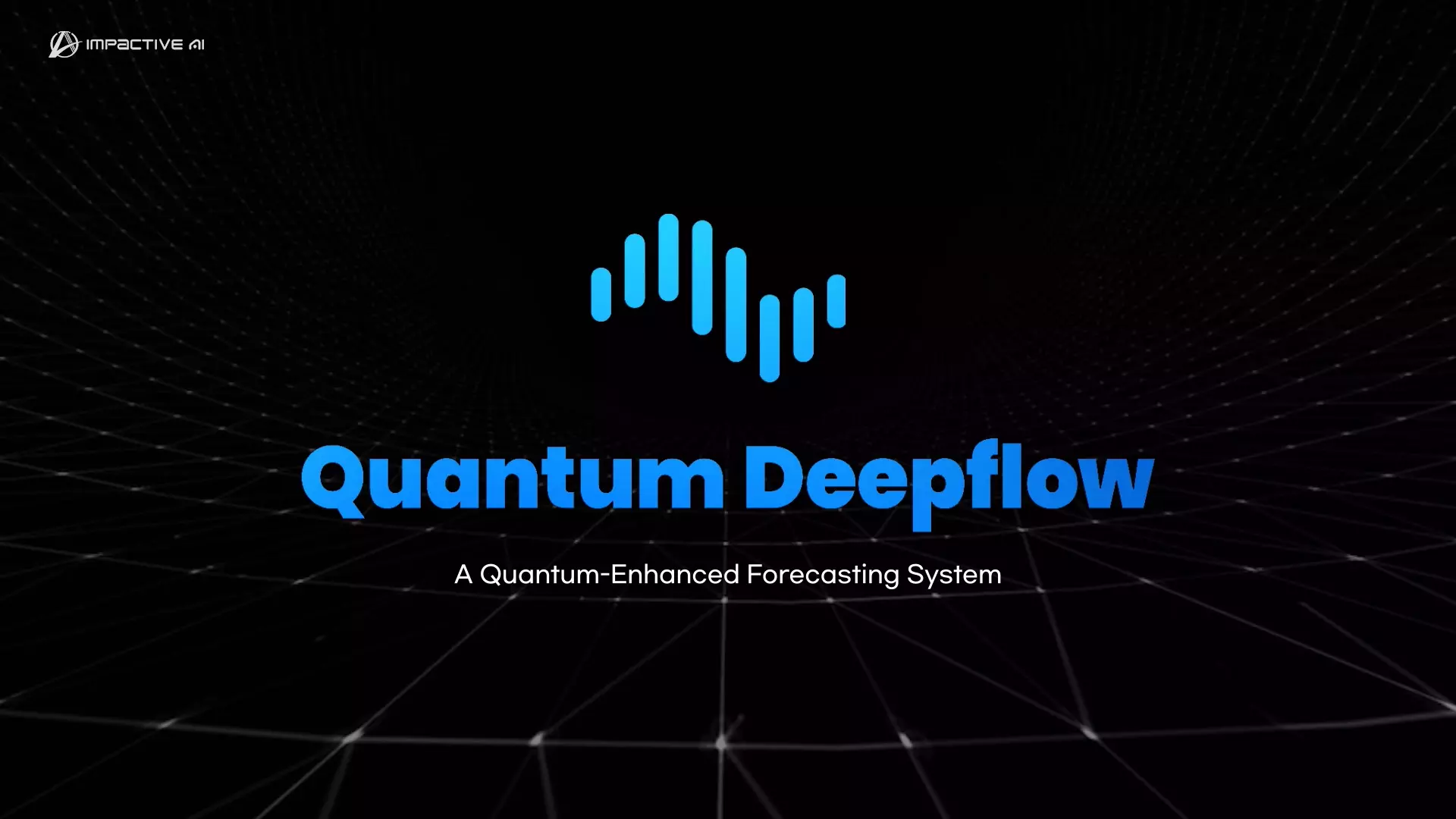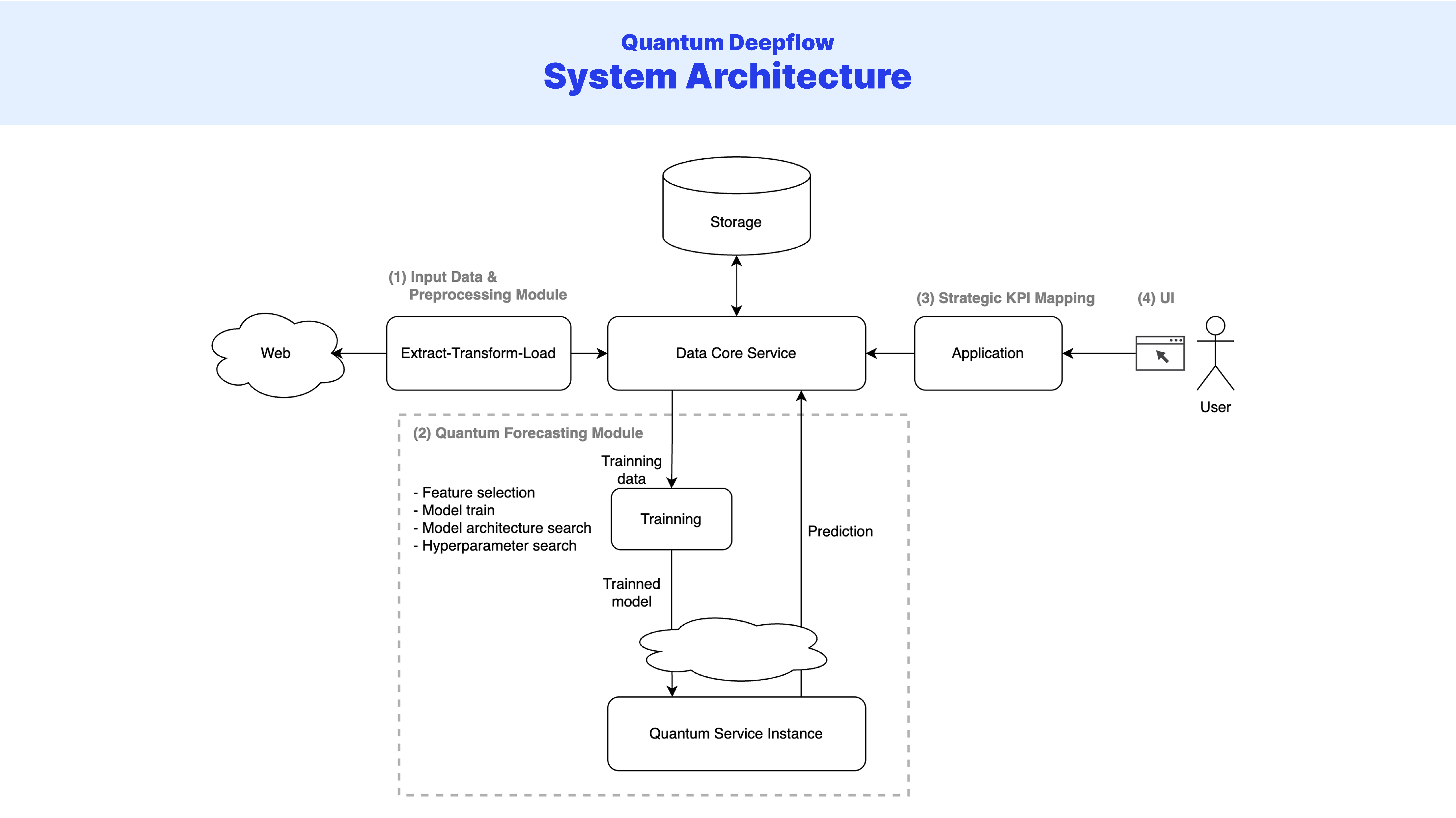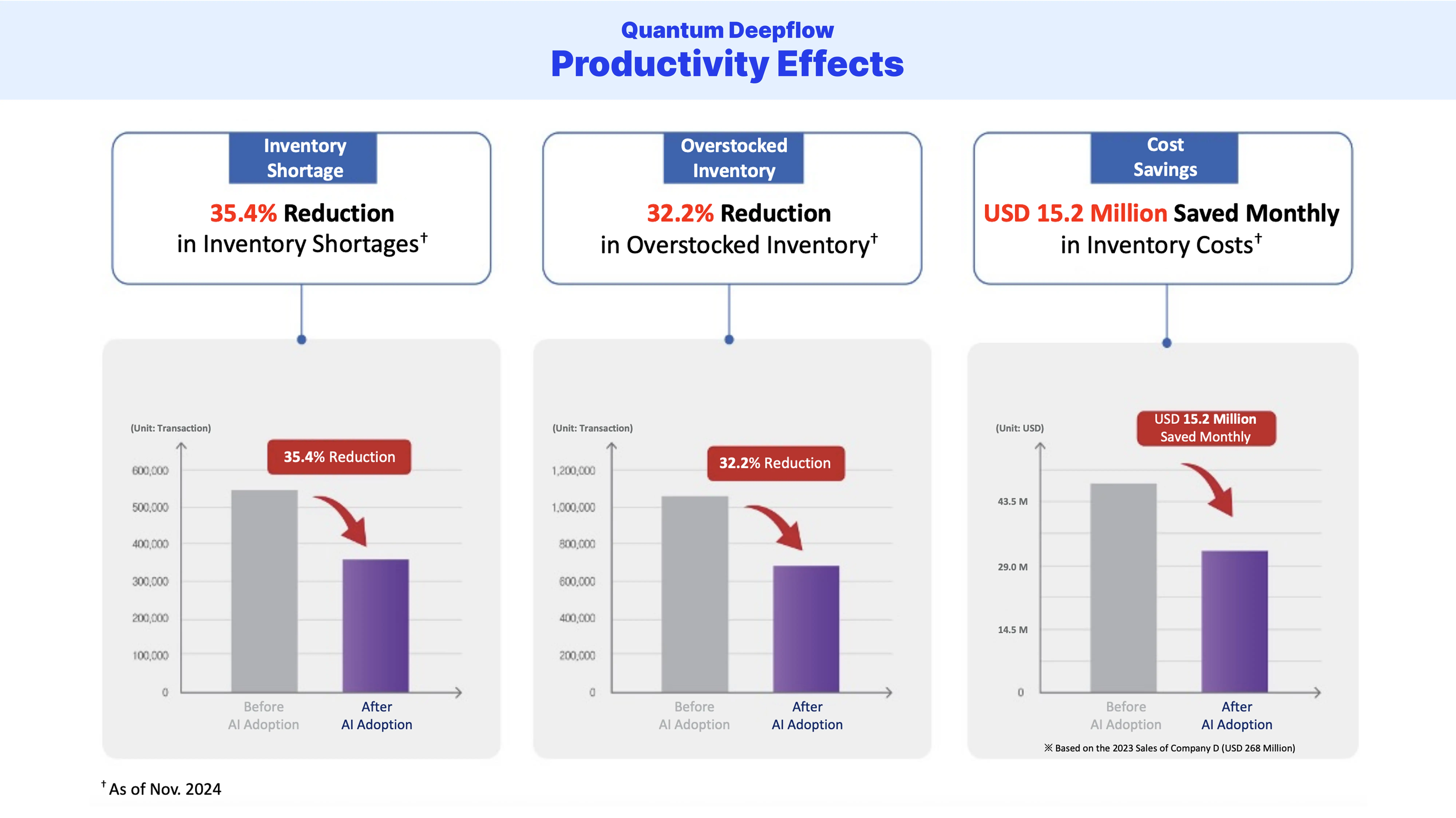
A research paper from a Korean AI company is garnering global attention at CIKM 2025, one of the most prestigious academic conferences in computer science. The Quantum Deepflow system, presented by ImpactiveAI, goes beyond a simple technological achievement, offering an innovative solution to one of the most complex decision-making challenges faced by manufacturers: optimizing raw material procurement.
In the highly volatile raw material market, deciding when and how much to purchase is a critical task that determines a company's profitability. This research is seen as a prime example of how AI technology can create a tangible competitive advantage in a complex business environment. For more information on the basic principles of raw material price forecasting and various real-world case studies, please refer to our article, "Principles of Raw Material Price Prediction and Success/Failure Cases."

The core of the paper accepted at CIKM 2025 is the Quantum LSTM model, which combines quantum computing with deep learning. Unlike traditional computing methods, quantum computing can process information in a state of superposition rather than a binary state of 0s and 1s, leading to significantly better performance in complex pattern recognition.
The Quantum Deepflow system uses a Variational Quantum Circuit (VQC) architecture to predict the prices and demand patterns of major raw materials like copper and aluminum. Particularly noteworthy is the custom AI model's ability to process over 60,000 variables simultaneously. By integrating diverse signals such as market trends, seasonal patterns, and macroeconomic factors, it enables much more sophisticated predictions than methods that rely solely on historical averages.
This technological superiority is even more significant in raw material price forecasting. The prices of materials like steel, copper, and aluminum are influenced by a complex web of hundreds of variables, including geopolitical situations, currency fluctuations, supply chain issues, and seasonality. It has been difficult for human experience or simple statistical models to accurately grasp the correlations between all these variables.
The system developed by the ImpactiveAI research team uses a quantum circuit-based deep learning model to learn these complex correlations. It also uses a denoising autoencoder to refine noisy market data, maximizing prediction accuracy. Above all, the technology was recognized for its commercial viability because it goes beyond a laboratory-level experiment and has been implemented as a decision-making system linked to the actual KPIs of purchasing managers.
Academic excellence alone is not enough for success in a real-world business environment. This research is drawing attention because it deeply incorporates practical business requirements alongside technical innovation.
The biggest challenge for a manufacturer's purchasing manager is not just predicting whether raw material prices will rise or fall, but also deciding when and how much to order to align with the actual production plan. An inventory shortage can disrupt production, while excessive inventory burdens capital management. This dilemma is even more pronounced for raw materials like steel or chemical feedstock, which have high storage costs and are prone to quality degradation. For more information on effective inventory management methods and tips for avoiding failure, refer to our article, "What Is Inventory Management? - Definition, Causes of Failure, and Implementation Methods."
The system developed by the research team simultaneously forecasts raw material prices and required quantities to suggest the optimal purchasing time and amount. This is backed by validation tests using real-world futures data from the LME (London Metal Exchange) and CME (Chicago Mercantile Exchange), which showed significantly higher prediction accuracy compared to existing methods.

This research is not just theoretical; it has been applied to ImpactiveAI's SaaS solution, Deepflow, and is being used by clients. Deepflow is an AI platform that helps companies in various industries—including manufacturing, retail, food, and steel—forecast real-time demand and price fluctuations and establish optimal ordering strategies.
The performance of the Quantum Deepflow system is proven by specific metrics validated in a real business environment. It has achieved up to 97-98% accuracy in raw material price forecasting and a high 70-80% accuracy in new product success prediction. In tests on 7 major raw material commodities, it achieved an average prediction accuracy of 95.5%. For individual materials, it showed high accuracy of over 94%, including iron ore (94.4%), nickel (95.7%), coal (96.1%), and zinc (94.8%).
Real-world application cases are also impressive. A German manufacturer was provided with daily raw material price forecasts with approximately 97-98% accuracy during a five-day exhibition. However, the quantum model has not yet been fully applied to Deepflow. Quantum technology is still mostly a theoretical possibility in the industry, and it is not yet in an active commercialization phase. Therefore, additional validation is still needed for Deepflow. However, Deepflow has already achieved significant capital savings for clients by reducing their inventory levels by 35% and has the potential to expand this even further. Deepflow seeks to achieve a level of accuracy that is reliable for real purchasing decisions, going beyond simple technical metrics. To learn more about successful AI inventory management implementation in manufacturing, please refer to our article, "Manufacturing AI Inventory Management Implementation Success Stories."
Even more impressive is the system's fully automated operation. Model training and deployment occur automatically whenever data is updated, and the entire process, including data training and modeling, is handled automatically by AutoML technology. With an intuitive user interface tailored to the key performance indicators (KPIs) of procurement managers, they can focus on the decision-making itself rather than spending time on complex data analysis. For more details on the core technology behind Deepflow's high prediction accuracy, refer to our article, "Why Deepflow Can Achieve High Demand Forecasting Accuracy."

This technological development strengthens corporate competitiveness in several ways.
First, it offers direct cost savings. By accurately forecasting raw material prices and purchasing at the right time, procurement costs can be significantly reduced. This provides a substantial advantage in cost competitiveness, especially for manufacturers where raw materials constitute a large portion of their costs.
Inventory management optimization is another key benefit. By purchasing only what is needed, when it is needed, companies can prevent capital from being tied up in excessive inventory while also avoiding production disruptions due to shortages. This improves capital efficiency and contributes to better customer service quality.
Improved decision-making speed and accuracy is another competitive advantage. In a rapidly changing market, quick and accurate decisions are crucial for seizing opportunities or avoiding risks. The objective, data-driven analysis provided by AI complements a manager's experience and intuition, enabling more precise decisions.
The CIKM 2025 paper acceptance is a symbolic event that shows where Korean AI companies stand in the global technology race. CIKM is a conference sponsored by global tech giants like Amazon, Google, and Baidu, where only the most innovative research from around the world is selected for presentation.
ImpactiveAI, in particular, was recognized for its technical originality by proposing the world's first industry-applicable quantum LSTM structure and implementing it at a commercial level in a real-world manufacturing and purchasing environment. This signifies that Korean companies are not just following foreign technology but are also presenting new technological paradigms. To learn more about the various algorithmic technologies used in raw material price forecasting, refer to our article, "Everything About Raw Material Price Prediction Algorithms."
ImpactiveAI's collaboration with the Fraunhofer IWU in Germany, a world-class manufacturing technology research institute, and its victory at the German Driverly Berlin competition also demonstrate international recognition of its technology. Furthermore, having secured 61 patent applications and registrations to protect its unique technology and attracting cumulative investments of 10.8 billion KRW proves the commercial value of the technology.

This research offers important insights into the broader digital transformation of manufacturing. In a global supply chain environment with increasing volatility, the ability to make accurate, data-driven predictions is no longer a choice but a necessity. To learn more about a systematic approach to AI adoption for manufacturers and where to start, please refer to our article, "Where Should I Start with AI Adoption in the Manufacturing Industry?"
The Quantum Deepflow system is scheduled for a public demonstration at CES 2026, which will be another opportunity to prove the innovation capabilities of a Korean AI company on a global technological stage. This is expected to be a meaningful presentation that goes beyond a simple technology showcase to offer a practical solution to the demand forecasting and inventory management problems that actual manufacturers face.
The successful application of quantum computing-based AI prediction technology to a real business environment presents new possibilities for other industries and companies as well. It could mark the beginning of a new paradigm for predicting the future by learning complex correlations, rather than simply extrapolating from past data.
Moving forward, the gap is expected to widen between companies that utilize this advanced prediction technology and those that do not. The era is approaching where technology use is no longer just about improving efficiency but becomes a core element of competitiveness directly linked to survival.
The Quantum Deepflow technology, recognized at CIKM 2025, stands at the forefront of this change, and it will be a crucial technological asset that will lead the strengthening of Korea's manufacturing competitiveness.
